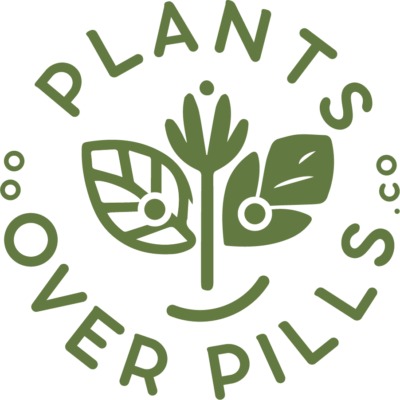Prostate Health 101: Expert Tips and Insights for Men
As men age, maintaining optimal prostate health becomes increasingly important. But what strategies can you implement to ensure that your prostate stays in top shape? Are there any natural remedies or lifestyle changes that can support prostate wellness? In this article, we will provide you with valuable tips and insights to help you take control of your prostate health. Get ready to discover the key to age gracefully and protect your prostate for years to come.
Key Takeaways:
- Understanding the role of the prostate gland in the male reproductive system.
- Common prostate health concerns that men may face as they grow older.
- The potential benefits of saw palmetto in supporting prostate health.
- The link between hair loss and prostate health and strategies to manage both concerns.
- The role of beta-sitosterol and lycopene in promoting prostate wellness.

Understanding Prostate Issues
To effectively maintain prostate health, it’s important to understand the prostate gland’s role in the male reproductive system and how it can be affected by various factors.
The prostate is a small gland located below the bladder and in front of the rectum. It is a crucial part of the male reproductive system and plays a vital role in the production of semen. The main function of the prostate is to produce and secrete a fluid that nourishes and protects sperm during ejaculation.
As men age, the prostate undergoes changes that can impact its health. One common issue is the enlargement of the prostate, a condition known as benign prostatic hyperplasia (BPH). This enlargement can lead to urinary problems, such as frequent urination and weak urine flow.
Prostate health can also be affected by other factors, including hormonal imbalances, genetics, inflammation, and lifestyle choices. Maintaining overall health and well-being is crucial for supporting prostate health.
“Understanding the role of the prostate gland in the male reproductive system is essential for maintaining prostate health.”
Factors Affecting Prostate Health
Various factors can influence the health of the prostate gland. These include:
- Hormonal imbalances: Changes in hormone levels can impact the growth and function of the prostate.
- Genetics: Family history of prostate problems can increase the risk of developing prostate-related conditions.
- Inflammation: Chronic inflammation in the prostate can contribute to the development of prostate issues.
- Lifestyle choices: Poor diet, lack of physical activity, smoking, and excessive alcohol consumption can negatively affect prostate health.
Understanding these factors and their potential impact on prostate health is crucial for taking proactive steps towards prevention and early detection of potential issues.
The Importance of Regular Prostate Exams
Regular prostate exams, including digital rectal exams (DRE) and prostate-specific antigen (PSA) tests, are essential for monitoring prostate health. These exams can help detect early signs of prostate conditions, allowing for timely intervention and treatment.
| Exam Type | Age to Start Screening | Frequency |
|---|---|---|
| Digital Rectal Exam (DRE) | 40-45 | Every 2 years |
| Prostate-Specific Antigen (PSA) Test | 50 | Every 1-2 years |
It is important to discuss the appropriate screening schedule with your healthcare provider, taking into consideration your personal risk factors and medical history.
Common Prostate Problem Concerns
As men age, it is important to be aware of common prostate health concerns that may arise. These concerns can have a significant impact on overall well-being and quality of life. By understanding and addressing these issues, men can take proactive steps to maintain their prostate health.
Enlargement of the Prostate (BPH)
One of the most common concerns for aging men is the enlargement of the prostate, also known as benign prostatic hyperplasia (BPH). This condition occurs when the prostate gland grows larger and begins to press against the urethra, causing urinary symptoms such as frequent urination, weak urine flow, and difficulty starting or stopping urination. BPH is a natural part of the aging process, and while it is not cancerous, it can significantly impact daily life. Seeking medical advice and exploring treatment options can help manage symptoms and improve quality of life.
Inflammation of the Prostate (Prostatitis)
Prostatitis is another common concern that can affect men of all ages, but it becomes more prevalent as men grow older. This condition refers to the inflammation of the prostate gland, often resulting from bacterial infection or pelvic muscle tension. Symptoms of prostatitis include pain or discomfort in the pelvic region, frequent urination, pain during urination or ejaculation, and flu-like symptoms. Seeking medical attention is crucial in order to determine the underlying cause of prostatitis and receive appropriate treatment.
Risk of Prostate Cancer
Prostate cancer is a significant concern for men as they age. According to the American Cancer Society, prostate cancer is the second most common cancer among American men. It is important to be aware of the risk factors for prostate cancer, including age, family history, race, and certain genetic mutations. Regular screenings, such as prostate-specific antigen (PSA) blood tests and prostate exams, are essential for early detection and improved treatment outcomes. Consulting with a healthcare professional can provide valuable guidance on when and how often to undergo screenings based on individual risk factors.
“By understanding and addressing these issues, men can take proactive steps to maintain their prostate health.”
The Benefits of Saw Palmetto
Saw Palmetto is a popular natural supplement that has been studied for its potential benefits in supporting prostate health. Research and evidence suggest that saw palmetto may help alleviate various prostate-related concerns and promote overall prostate wellness.
One of the primary benefits of saw palmetto is its potential to reduce the symptoms of an enlarged prostate, also known as benign prostatic hyperplasia (BPH). BPH affects many men as they age and can cause urinary problems such as frequent urination, weak urine flow, and difficulty emptying the bladder completely. Studies have shown that saw palmetto can help improve urinary symptoms and enhance overall quality of life for individuals with BPH.
Additionally, saw palmetto may possess anti-inflammatory properties that could contribute to its positive effect on prostate health. Inflammation of the prostate, known as prostatitis, can lead to discomfort, pain, and urinary difficulties. By reducing inflammation, saw palmetto may help alleviate these symptoms and support a healthy prostate.
Moreover, saw palmetto may also exert an inhibitory effect on the conversion of testosterone to dihydrotestosterone (DHT), a hormone that plays a role in prostate enlargement. By blocking the action of an enzyme called 5-alpha-reductase, saw palmetto may help prevent the excessive growth of prostate cells that can occur due to DHT. This mechanism of action is similar to that of some prescription medications used to treat BPH.
Research has demonstrated that saw palmetto can reduce urinary symptoms associated with benign prostatic hyperplasia (BPH), alleviate inflammation, and inhibit the conversion of testosterone to dihydrotestosterone (DHT). These properties make it a promising natural supplement for supporting prostate health.*
It is important to note that while many studies have reported positive outcomes with saw palmetto, further research is still needed to fully understand its mechanisms of action and potential benefits. Always consult with a healthcare professional before starting any new supplement, especially if you have any existing medical conditions or are taking other medications.
The Research Behind Saw Palmetto
Several clinical studies have explored the efficacy of saw palmetto in supporting prostate health. These studies vary in terms of their design, duration, and patient demographics, which lends credibility to the overall body of evidence surrounding saw palmetto and its benefits.
One notable study published in the Journal of the American Medical Association in 1998 found that saw palmetto was as effective as a commonly prescribed medication for BPH, without the side effects associated with the drug. The study involved over 300 men and concluded that saw palmetto significantly improved urinary symptoms and flow measures compared to a placebo.
Another systematic review published in the Cochrane Database of Systematic Reviews in 2012 analyzed the results of 32 different trials involving over 5,000 men. The review found that saw palmetto provided modest improvements in urinary symptoms and urinary flow compared to a placebo, further supporting its potential efficacy in managing BPH.
| Study | Participants | Results |
|---|---|---|
| 1998 JAMA study | Over 300 men | Saw palmetto significantly improved urinary symptoms and flow measures compared to a placebo |
| Cochrane Database review (2012) | Over 5,000 men | Saw palmetto provided modest improvements in urinary symptoms and urinary flow compared to a placebo |
These studies and others suggest that saw palmetto may offer significant benefits for prostate health. However, it is essential to consult with a healthcare professional for personalized advice and guidance regarding the use of saw palmetto or any other natural supplement.
Next, we will delve into the potential connection between hair loss and prostate health in Section 5.
Managing Hair Loss and Prostate Long Term Health
While hair loss and prostate health may seem like unrelated concerns, some studies have suggested a potential link between the two. Understanding this connection can provide valuable insights for managing both issues.
When it comes to hair loss, various factors can contribute to its onset, including genetics, hormones, and age. On the other hand, prostate health can also be affected by aging and hormonal imbalances. Researchers have found that certain hormones, such as testosterone and dihydrotestosterone (DHT), play significant roles in both hair follicle health and prostate function.
One theory suggests that elevated DHT levels, which are commonly associated with an enlarged prostate, may also contribute to hair loss. DHT can bind to receptors in the hair follicles, inhibiting their growth and eventually leading to hair thinning and loss. However, it is important to note that more research is needed to fully understand the complex relationship between hair loss and prostate health.
If you are experiencing hair loss and have concerns about your prostate health, it is recommended to consult with healthcare professionals who specialize in these areas. They can provide expert guidance and explore potential treatment options tailored to your specific needs.
When managing hair loss and supporting prostate health, a holistic approach is often beneficial. This may include lifestyle modifications, such as maintaining a balanced diet rich in essential nutrients, regular exercise, and stress management. Additionally, certain supplements with potential benefits for both hair health and prostate function, such as saw palmetto, may be considered.
Remember, managing hair loss and maintaining optimal prostate health is a journey that requires patience and a comprehensive approach. By combining expert advice, healthy lifestyle choices, and targeted treatments, you can take positive steps towards managing these concerns and enhancing your overall well-being.
The Role of Beta-Sitosterol in Prostate
Beta-sitosterol, a plant sterol found in various foods and supplements, has gained attention for its potential benefits in promoting prostate health. Research suggests that this natural compound may play a significant role in supporting the well-being of the prostate gland.
How does beta-sitosterol work?
Beta-sitosterol is believed to work by inhibiting the action of enzymes responsible for converting testosterone into dihydrotestosterone (DHT). Excessive levels of DHT are associated with prostate enlargement, a common condition among aging men. By reducing DHT levels, beta-sitosterol may help to prevent or alleviate prostate enlargement, also known as benign prostatic hyperplasia (BPH), a condition that can cause urinary symptoms and discomfort.
Research suggests that beta-sitosterol may have anti-inflammatory properties, which could further contribute to its positive impact on prostate health.
Beyond its potential to support prostate health, beta-sitosterol may also help manage cholesterol levels and improve cardiovascular health. Additionally, preliminary studies indicate that this plant sterol may have immune-modulating properties, which could benefit overall well-being.
The Role of Diet in Beta-Sitosterol Intake
While beta-sitosterol can be obtained through dietary sources such as fruits, vegetables, nuts, and seeds, it may be challenging to consume sufficient amounts to experience its potential health benefits. Therefore, many individuals turn to supplements that provide concentrated amounts of beta-sitosterol.
It is important to note that dietary supplements vary in quality and efficacy. When choosing a beta-sitosterol supplement, look for a reputable brand that undergoes third-party testing to ensure purity and potency. Consulting with a healthcare professional is also advisable to determine the appropriate dosage and assess potential interactions with medications or existing health conditions.
Sources of Beta-Sitosterol
| Food Source | Beta-Sitosterol Content per 100g |
|---|---|
| Avocado | 76mg |
| Nuts (almonds, walnuts, pecans) | 35-40mg |
| Seeds (sesame, pumpkin, flax) | 100-300mg |
| Wheat germ | 200-400mg |
| Corn oil | 200mg |
| Olive oil | 200mg |
While incorporating these foods into your diet can contribute to your beta-sitosterol intake, it’s important to note that the amounts may vary, and additional supplementation may be necessary to reach therapeutic levels.
Conclusion:
Beta-sitosterol holds promise in supporting prostate health, particularly in relation to prostate enlargement. By inhibiting the conversion of testosterone to DHT and potentially reducing inflammation, beta-sitosterol may contribute to maintaining a healthy prostate. However, it’s crucial to consult with a healthcare professional before starting any new supplement regimen to ensure it aligns with your specific health needs.
The Power of Lycopene for a Healthy Prostate
When it comes to prostate health, lycopene, a powerful antioxidant found in tomatoes and other fruits, has shown promising benefits. Multiple studies have investigated the role of lycopene in maintaining prostate health and have uncovered positive associations.
Research suggests that lycopene may help reduce the risk of developing prostate-related conditions and support overall prostate well-being. The antioxidant properties of lycopene help neutralize harmful free radicals in the body, which can contribute to cellular damage and inflammation in the prostate gland.
In addition to its antioxidant effects, lycopene may also have anti-inflammatory properties that help reduce inflammation in the prostate. Chronic inflammation has been linked to prostate health issues, and by incorporating lycopene-rich foods into your diet, you may be able to mitigate this risk.
“Several studies have shown that individuals with higher lycopene levels in their blood tend to have a lower risk of developing prostate-related conditions.”
Incorporating lycopene into your diet can be as simple as enjoying a delicious tomato-based pasta sauce, adding fresh tomatoes to salads, or indulging in watermelon slices. Other excellent sources of lycopene include pink grapefruit, guava, and papaya.
The Benefits of Lycopene:
- Reduced risk of prostate enlargement
- Promotion of healthy cell growth in the prostate gland
- Support for healthy prostate function
- Reduced inflammation in the prostate
- Protection against oxidative stress and cellular damage
While increasing your dietary intake of lycopene-rich foods is beneficial, it’s important to note that lycopene supplements are also available. If you’re considering adding a lycopene supplement to your routine, it’s advisable to consult with a healthcare professional or a registered dietitian to ensure proper dosage and suitability.
Overall, incorporating lycopene into your diet can be a proactive step towards supporting your prostate health. By enjoying a variety of fruits and vegetables rich in lycopene, you can harness the power of this beneficial antioxidant in a natural and delicious way.
| Food Source | Lycopene Content (per 100g serving) |
|---|---|
| Tomatoes (cooked) | 3.0-5.0 mg |
| Watermelon | 4.5-7.0 mg |
| Pink Grapefruit | 1.0-1.5 mg |
| Guava | 1.0-1.5 mg |
| Papaya | 0.4-0.9 mg |
Diet and Lifestyle Factors for Prostate
Maintaining optimal prostate health as you age involves making smart choices regarding your diet and lifestyle. By adopting a balanced diet and incorporating healthy habits, you can reduce the risk of prostate-related issues and support overall well-being. Here are some key recommendations to consider:
- Eat a variety of nutrient-rich foods: Include a wide range of fruits, vegetables, whole grains, and lean proteins in your diet. These provide essential vitamins, minerals, and antioxidants that promote prostate health.
- Limit saturated fats: High intake of saturated fats, commonly found in red meat and full-fat dairy products, has been linked to an increased risk of prostate problems. Choose leaner cuts of meat and opt for low-fat dairy alternatives.
- Increase omega-3 fatty acids: Consuming foods rich in omega-3 fatty acids, such as fatty fish (salmon, mackerel, and sardines), flaxseeds, and walnuts, may help reduce inflammation and support prostate health.
- Stay hydrated: Drinking an adequate amount of fluids, mainly water, is crucial for maintaining prostate health. Aim for at least 8 glasses a day to promote proper functioning and flushing out toxins.
- Avoid excessive alcohol consumption: Heavy alcohol consumption can harm prostate health and increase the risk of prostate problems. Drink alcohol in moderation or consider abstaining altogether.
- Engage in regular physical activity: Regular exercise plays a significant role in prostate health. Aim for at least 150 minutes of moderate-intensity aerobic activity per week, along with strength training exercises.
- Maintain a healthy weight: Obesity and excessive weight gain have been associated with a higher risk of prostate issues. Strive to achieve and maintain a healthy weight through a combination of a balanced diet and regular exercise.
- Don’t smoke: Smoking harms overall health, including prostate health. If you’re a smoker, consider quitting to reduce your risk of prostate-related problems.
- Manage stress: Chronic stress can have a negative impact on prostate health. Incorporate stress-management techniques like meditation, deep breathing exercises, or engaging in hobbies to promote overall well-being.
By following these recommendations and making positive lifestyle choices, you can take active steps to support your prostate health as you age. Remember, it’s always best to consult with your healthcare provider for personalized advice and recommendations based on your individual needs.
| Food | Benefits |
|---|---|
| Tomatoes | Rich in lycopene, a powerful antioxidant that may reduce the risk of prostate issues |
| Broccoli | Contains sulforaphane, a compound that may help prevent prostate cancer |
| Saw Palmetto | A natural herbal supplement that may support prostate health and alleviate symptoms of an enlarged prostate |
| Pomegranate | May help slow the progression of prostate cancer and reduce inflammation |
| Green Tea | Rich in antioxidants and compounds that may help inhibit the growth of prostate cancer cells |

Exercise and Men Health
Regular physical activity plays a vital role in maintaining overall health and wellbeing, and it also has significant benefits for prostate health. Engaging in exercise has been linked to a reduced risk of prostate-related conditions and can help support healthy aging in men.
Studies have shown that regular exercise can help improve prostate health by:
- Reducing the risk of prostate enlargement (benign prostatic hyperplasia).
- Lowering the likelihood of developing prostate inflammation (prostatitis).
- Managing symptoms associated with an enlarged prostate, such as frequent urination or weak urine flow.
- Promoting better overall blood circulation, which contributes to prostate health.
Exercise has also been shown to help support a healthy weight, which is crucial for maintaining prostate health as excess weight and obesity have been linked to an increased risk of prostate-related conditions.
When it comes to incorporating exercise into your routine, it’s important to focus on both cardiovascular exercises and strength training. Cardiovascular exercises, such as brisk walking, jogging, cycling, or swimming, get your heart rate up and improve blood flow, benefiting your prostate. Strength training exercises, like lifting weights or bodyweight exercises, help build muscle mass and strength, which can contribute to overall well-being.
Remember, it’s crucial to consult with your healthcare provider before starting any new exercise program, especially if you have any existing medical conditions or concerns.
Participating in regular physical activity not only supports your prostate health but also enhances your overall quality of life as you age. Stay active, stay healthy!
The Role of Pelvic Floor Exercises
In addition to regular exercise, pelvic floor exercises, also known as Kegel exercises, can help improve prostate health. These exercises target the muscles that support the prostate and can help enhance urinary control and sexual function.
Pelvic floor exercises can be performed by tightening and releasing the muscles that control urine flow. Start by identifying these muscles, often referred to as the “stop urine” muscles. Once you’re familiar with them, contract and hold these muscles for a few seconds, then release. Aim to gradually increase the duration and frequency of the contractions over time.
Consistency is key when it comes to pelvic floor exercises. Make them a part of your daily routine for optimal results.
Sample Prostate Health Exercise Routine
Here’s an example of a prostate-healthy exercise routine that you can incorporate into your weekly schedule:
| Day | Activity | Duration |
|---|---|---|
| Monday | Brisk Walking | 30 minutes |
| Tuesday | Strength Training (bodyweight exercises) | 30 minutes |
| Wednesday | Rest or Gentle Stretching | – |
| Thursday | Swimming | 30 minutes |
| Friday | Cycling | 45 minutes |
| Saturday | Pelvic Floor Exercises | 10 minutes |
| Sunday | Rest or Gentle Stretching | – |
Remember to adjust this routine based on your current fitness level and consult with a healthcare provider or a certified fitness professional for personalized advice.
By incorporating regular exercise and pelvic floor exercises into your routine, you can take proactive steps towards maintaining optimal prostate health as you age. Stay active, stay healthy, and enjoy the benefits of an active lifestyle!
Early Detection and Screening for Prostate Problems
Detecting potential prostate issues in their early stages is crucial for effective management. Regular check-ups and screening tests play a crucial role in maintaining prostate health for aging men.
The Importance of Regular Check-ups
Visiting your healthcare professional regularly allows for the timely identification of any potential prostate health concerns. During these check-ups, your doctor can perform various tests and examinations to monitor the health of your prostate gland.
These check-ups typically involve:
- Reviewing your medical history and discussing any symptoms or concerns you may have
- Performing a physical examination of your prostate gland, including a digital rectal exam (DRE)
- Ordering blood tests to measure prostate-specific antigen (PSA) levels
Screening Tests for Prostate
In addition to regular check-ups, several screening tests are available to assess your prostate health. These tests help detect prostate issues at an early stage, even before symptoms arise.
Common screening tests include:
- Prostate-Specific Antigen (PSA) Test: This blood test measures the levels of PSA in your bloodstream. Elevated PSA levels can indicate the presence of prostate conditions. However, it’s important to note that PSA levels can be affected by various factors, and further testing may be necessary to confirm a diagnosis.
- Digital Rectal Exam (DRE): During this examination, your doctor manually assesses the size, shape, and texture of your prostate gland. Though it may be uncomfortable, the DRE is a valuable tool for detecting abnormalities in the prostate.
Did you know? While the PSA test and DRE are commonly used for prostate cancer screening, their effectiveness has been a topic of debate among medical professionals. It is recommended to discuss the potential benefits and risks of screening with your physician to make an informed decision based on your individual circumstances.
Understanding the Results
Interpreting the results of your check-ups and screening tests requires the expertise of your healthcare provider. They will assess your individual risk factors, medical history, and other relevant factors to provide personalized guidance and recommend further action if necessary.
| PSA Level | Interpretation |
|---|---|
| Below 4 nanograms per milliliter (ng/mL) | Normal range for most men |
| 4 to 10 ng/mL | Moderate risk of prostate issues |
| Above 10 ng/mL | Higher risk of prostate conditions |
Remember, a high PSA level does not necessarily indicate prostate cancer. Further diagnostic tests, such as a prostate biopsy, may be needed to confirm a diagnosis.
Regular check-ups and screening tests equip you with valuable information about your prostate health. It’s crucial to discuss the results and any concerns you may have with your healthcare provider to determine the most appropriate course of action.

Integrative Approaches to Prostate Health
When it comes to maintaining prostate health, the combination of conventional medicine with complementary and alternative therapies can provide a comprehensive approach. Integrative approaches focus on supporting the body’s natural healing mechanisms and promoting overall well-being. In this section, we will explore various integrative approaches, including acupuncture and herbal remedies, that can help support prostate health.
The Benefits of Acupuncture
Acupuncture is an ancient Chinese practice that involves the insertion of thin needles into specific points on the body. Many men turn to acupuncture as a complementary therapy for prostate health. It is believed that acupuncture can help improve blood circulation, reduce inflammation, and promote relaxation, which may have a positive impact on prostate health. While more research is needed to fully understand the specific benefits of acupuncture for prostate health, many men report positive outcomes and improved quality of life.
Herbal Remedies for Prostate Health
Herbal remedies have been used for centuries to support various aspects of health, including prostate health. Several herbs have shown promise in promoting prostate wellness and reducing symptoms associated with prostate issues. Saw palmetto, for example, is a popular herb that may help manage symptoms of an enlarged prostate. Other herbs like pygeum, nettle root, and rye grass pollen extract may also have beneficial effects on prostate health. It’s essential to consult with a knowledgeable healthcare practitioner before incorporating any herbal remedies into your routine to ensure safety and effectiveness.
“Integrating acupuncture and herbal remedies alongside conventional treatments can provide a more holistic approach to prostate health.” – Dr. Robert Johnson, Integrative Medicine Specialist
Lifestyle Modifications Men Need To Do
While acupuncture and herbal remedies are valuable tools, it’s important to address lifestyle factors for comprehensive prostate health. This includes maintaining a healthy weight, eating a balanced diet rich in fruits, vegetables, and whole grains, and staying physically active. Regular exercise can support prostate health by improving circulation, reducing inflammation, and supporting overall well-being. Additionally, managing stress levels and getting enough quality sleep are equally important for prostate health as they contribute to the body’s ability to heal and function optimally.
Integrative Approaches: A Holistic Approach to Prostate Concerns
By combining conventional medicine with complementary and alternative therapies like acupuncture and herbal remedies, men can take a holistic approach to prostate health. These integrative approaches aim to address not only the physical symptoms but also the emotional and mental well-being, supporting the body’s innate ability to maintain prostate health. It’s essential to consult with qualified healthcare professionals experienced in integrative medicine to create a personalized treatment plan that suits your specific needs.
| Treatment | Method | Potential Benefits |
|---|---|---|
| Acupuncture | Insertion of thin needles at specific points on the body | Improved blood circulation Reduced inflammation Promotion of relaxation |
| Herbal Remedies | Use of specific herbs and plant extracts | Support for prostate wellness Reduction of symptoms related to prostate issues |
| Lifestyle Modifications | Weight management Healthy diet and exercise Stress management and quality sleep | Support for overall prostate health Improved well-being |
Keep In Mind
In conclusion, taking care of your prostate health is crucial as you age. By implementing the strategies and insights provided, you can proactively maintain optimal prostate health and minimize the risks associated with aging. Remember, it’s always a good idea to consult with healthcare professionals who can offer personalized advice based on your specific needs and medical history.
As an elderly man, prioritizing your prostate health should be a priority. By following a balanced diet, engaging in regular exercise, and considering natural supplements such as saw palmetto, beta-sitosterol, and lycopene, you can support the well-being of your prostate gland.
Early detection through regular check-ups and screening tests is essential for identifying any potential issues at their earliest stages. By incorporating integrative approaches like acupuncture and herbal remedies, you can further support your prostate health. Remember, prevention and proactive care are key to enjoying optimal prostate health and overall well-being as you age.
FAQ
What is the role of the prostate gland in the male reproductive system?
The prostate gland plays a crucial role in the male reproductive system by producing and secreting fluid that nourishes and protects sperm during ejaculation.
What are some common prostate health concerns in aging men?
Aging men commonly face prostate health concerns such as prostate enlargement (benign prostatic hyperplasia), inflammation (prostatitis), and an increased risk of developing prostate cancer.
Can saw palmetto help with prostate health?
Saw palmetto is a popular natural supplement that has shown potential benefits in supporting prostate health. Some studies suggest that it may help reduce symptoms of prostate enlargement and inflammation.
Is there a link between hair loss and prostate health?
Some studies have suggested a possible connection between hair loss and prostate health, although the exact relationship is not yet fully understood. It’s important to address both concerns separately and consult with healthcare professionals for personalized advice.
What is the role of beta-sitosterol in prostate health?
Beta-sitosterol, a plant sterol, has been associated with potential benefits for prostate health. It may help reduce urinary symptoms related to prostate enlargement and support overall prostate wellness.
How does lycopene affect prostate?
Lycopene, a powerful antioxidant found in tomatoes and other fruits, has been linked to prostate health benefits. Research suggests that lycopene may help reduce the risk of prostate cancer and support overall prostate wellness.
What role does diet and lifestyle play in maintaining prostate health?
Maintaining a balanced diet rich in fruits, vegetables, whole grains, and healthy fats, along with adopting a healthy lifestyle that includes regular exercise and limiting alcohol consumption, can contribute to optimal prostate health.
Can exercise promote health for man?
Regular physical activity has been linked to numerous health benefits, including prostate health. Exercise can help improve blood flow to the prostate and reduce the risk of prostate-related issues in aging men.
How important is early detection and screening for prostate health?
Early detection of potential prostate issues through regular check-ups and screening tests, such as the prostate-specific antigen (PSA) test and digital rectal examination (DRE), is crucial for effective management and prompt treatment if necessary.
What are some integrative approaches to supporting prostate health?
Integrative approaches such as acupuncture, herbal remedies, and dietary supplements may have potential benefits for prostate health. It’s important to consult with healthcare professionals before trying any integrative therapies.
How can I maintain optimal prostate health as I age?
By implementing strategies such as maintaining a healthy diet, engaging in regular exercise, practicing good lifestyle habits, and staying proactive with regular check-ups and screenings, you can take essential steps to maintain optimal prostate health as you age.




